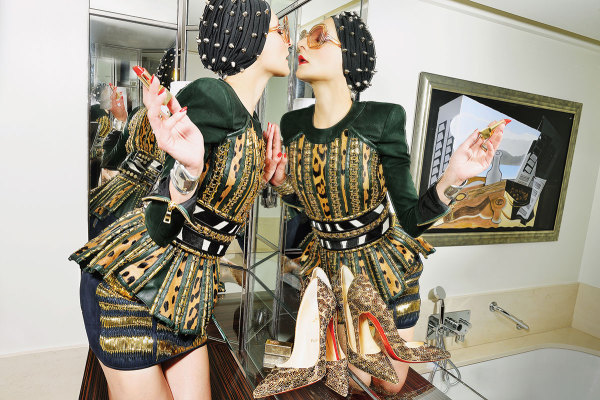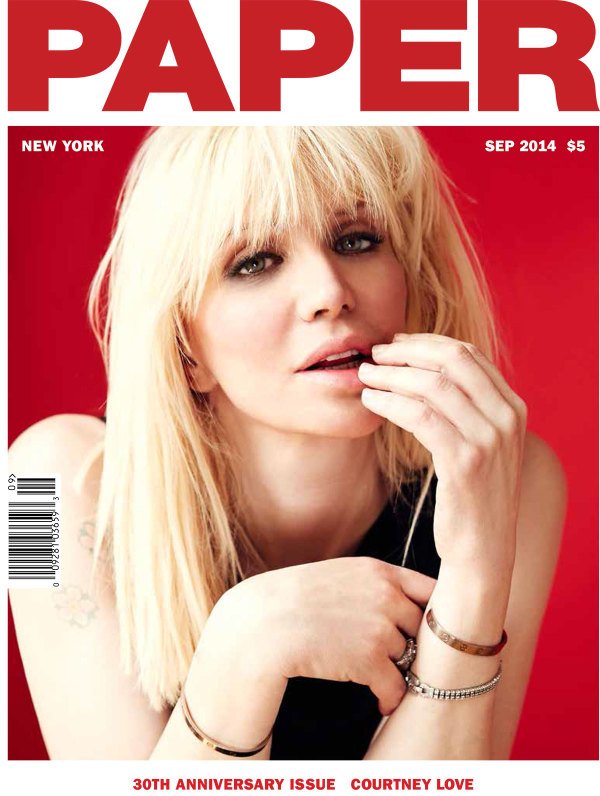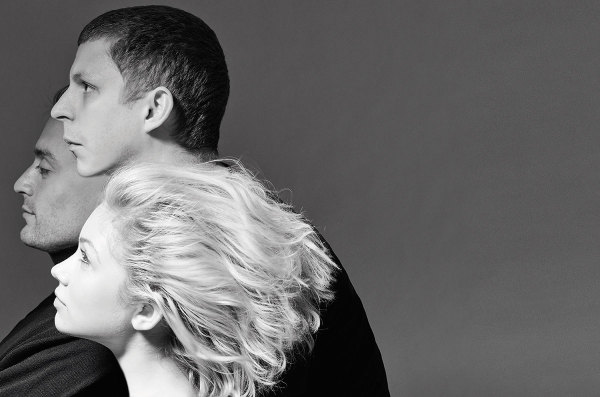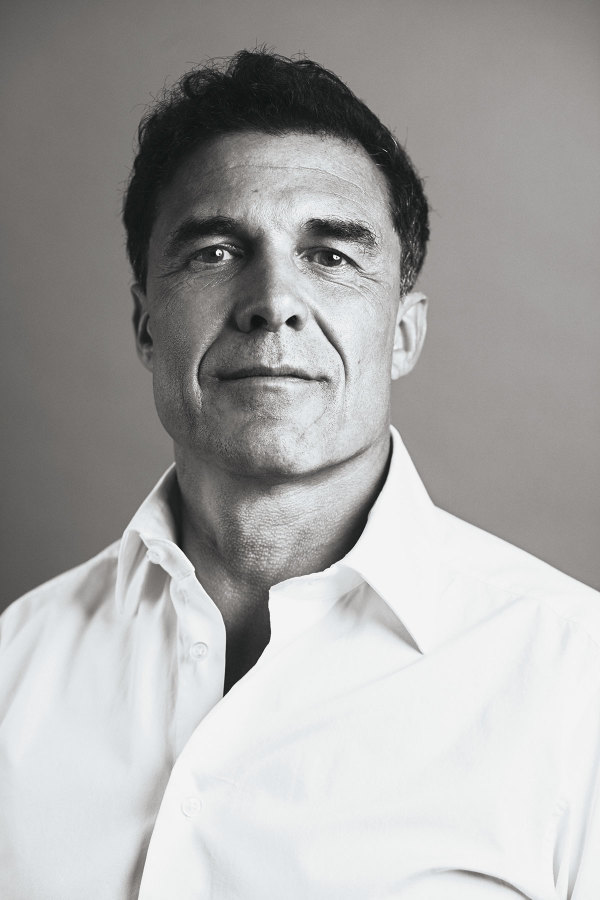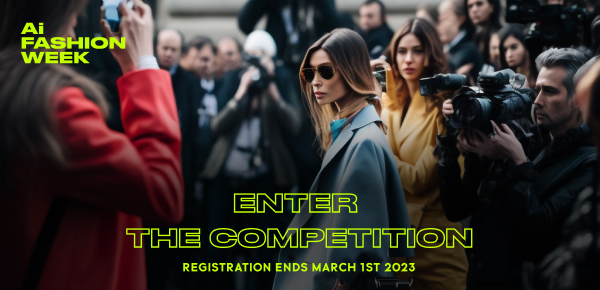In celebration of their 30th birthday, we sat down with Paper Magazine’s David Hershkovits to discuss their evolution from being a simple paper fold out to emerging as a top indie magazine
specializing in surfacing the best in nightlife, art, fashion and underground culture. We learn where they’ve been, where they’re going and why print isn’t really dead. Read the Interview below…
TL: What was the key to Paper’s survival over the past three decades?
DH: We were constantly shifting and changing, trying to keep up with everything. Over 30 years, a lot of shit happens with the economy going up and down. One day you feel like this is it and then suddenly there’s 911 and then there’s 2008 where everyone had to rethink what a magazine is and then there’s technology and so on. We are rolling with that because we don’t have money from a big company so our resources are generated in-house. Whenever something goes bad we can’t go out and just take out money.
TL: Why did you choose Brooke Candy and Courtney Love for the covers of your September issue?
DH: The issue was built around the theme of the original gangsters or people who disrupted the worlds of arts, and fashion, entertainment. There are people like Larry Clark and these types from back in the day but also younger people from today. So Brooke represents the new disrupters and Courtney the old.
TL: I really loved the Original Gangster theme throughout the issue. Who are your personal OGs?
DH: The Beat poets, Bob Dylan, Fab 5 Fred Brathwaite, Afrika Bambaataa, Franz Kafka, Patti Smith, Joan Didion, Susan Sontag…
TL: Is print is dead?
DH: Print is not going away. Delivery systems of a certain kind of content are no longer relevant and all media preexisting the technological revolution have to adjust to the disruption. Classified ads in daily newspapers and keeping up with news in the age of twitter, for example. On the other hand, magazines in this age are a luxury product and have to be viewed as such.
TL: What does it take to stay afloat in the publishing industry?
DH: Don’t get stuck in doing it your way. Be open to new ideas.
TL: Paper pioneered the Internet game in 1995 before NY Times and everyone else did; tell us what it was like to be first on the map.
DH: Wow there’s this fucking thing. The Internet. What is it? You can go online! You could suddenly do things so quickly and get stories up. There was no audience. No one knew what we were even talking about. No Google. No one had even been on the Internet yet. We were way ahead of everybody. It was crazy because Condé Nast wasn’t doing anything for years. They didn’t even have computers in their offices while we were already doing our design on apples. It kind of was lucky because it saved us in a way because it enabled us to do things faster like the type save.
TL: Over the years do you believe your content and viewership shifted?
DH: Now everyone’s covering downtown. And if a little coffee shop opens up on Orchard Street the NY Times does a full-page story on it, and there’s a million blogs. That was the world that we owned but then culture caught up to us which was a good feeling in a way because it shows us that we knew the way. It freed us.
We turned our lens on the bigger world of celebrities of fashion and entertainment and weird GIFS. We don’t have to limit ourselves to that stuff anymore. We can comment on the whole world at large. We can do anything we really want. We can write about serious topics and then something funny with Kim Kardashian.
It’s still very exciting and it’s all undergoing change because now the magazine is turning into a more visual product, luxury product, with less written stories. We have a new idea, let’s use the magazine to help the web, instead of the web to help the magazine.
TL: Looking forward, what direction is Paper going in? A quarterly? Premium collector’s subscription? Books? An App? Or video-concentrated?
DH: Yes, yes, yes. I think we will always have the magazine. That’s a part of our portfolio. It’s our brand. Actually, I feel magazine is going to come back as a product. More luxury, better paper, something that people could hold onto. It’s not to be thrown away. We want to make something non-disposable. Something like shit I want to hold on to this another month. Yes, we’ll do apps. We’ll do books. We’ve done a couple of books.
There’s a lot of interest in T.V. and video. We have a channel on YouTube but everyone does. We’ll go into the cable networks around something we do. They need it because people are streaming on all these different platforms; they need content more than ever now. You can imagine taking stories that we’re working on and turning them into a show of some sort. Or using archives and what we’ve been doing all these years. There’s a lot of opportunity in that.
And certainly more websites. What we are doing is fine but there’s no reason we can’t have verticals that go off in specific directions. A nightlife site, fashion site that’s focused in that subject, in a more tailored way.
TL: How did the ExtraExtra Creative agency come to be?
DH: It started out as events. It was very much a natural extension from what we always did, parties. We’d always do a party for every issue. I always tell people we have the Guinness book of world record number of parties. Today, it does big events, but also consulting, marketing, and strategy. But it’s more than just an event that we’re hired for. We create the event. We come up with the idea. We build it.
TL: What do you see as the next disruption?
DH: You can’t predict it. But what I do see on the digital side is that people are coming up with whatever. Say the next Uber which is a disruption but its not really that original. It’s taking what’s out there and making an app and building a business behind it and then being ruthless and making sure you own everything. That’s the model. The things I worry about have to do more with the outside, the economy or some screwed up war somewhere, terrorist attack, which is way more disruptive than any other app will ever be.



